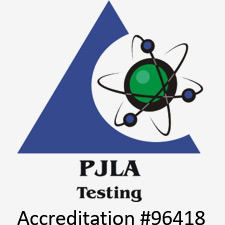Once a polypeptide has formed, it is folded into secondary and tertiary structures to form the characteristic three-dimensional (3D) shape of a protein. Although protein functionality is largely a result of structure, the adoption of this 3D profile is not necessarily the final hurdle in formation. Co- or post-translational protein modifications may be required before molecules can carry out their specific function, from immunogenic activity to catalysis.
Co-translational protein modifications occur to the underlying polypeptide chain while it is folding into secondary and tertiary structures. An example of this is acetylation of the N-terminus of the protein, where the first amino acid (AA) in a polypeptide is reacted with an acetyl group. This form of co-translational protein modification is extremely common. Post-translational protein modifications, by contrast, occur once the polypeptide has adopted its 3D structure. These are the category of protein modifications that are generally of greatest interest to biopharmaceutical and life science researchers.
Jordi Labs can help you analyze your proteins to determine the extent of acetylation or other modifications. There are a myriad of post-translational modifications affecting proteins in biochemical applications, for example:
- Glycosylation occurs when a carbohydrate is added to a protein, attaching to a hydroxyl or other functionality. It is a vital protein modification that assists in the identification of different types of cells and contributes to protein stability and bioactivity.
- PEGylation occurs when a glycol (polyethylene glycol) covalently binds to a therapeutic protein, which can increase the structure’s hydrodynamic size and improve transparency to a host immune system.
We can interrogate various protein modifications in situ using a host of advanced analytical techniques, including high resolution mass spectroscopy (HRMS), gel permeation chromatography with multiangle laser light scattering (GPC-MALLS), dynamic light scattering (DLS), and UV-Vis spectroscopy.
Protein Analysis with Jordi Labs
Jordi Labs is a specialist in the analysis of co- and post-translational protein modifications to assist in general life sciences research or target new drug developments in advanced biopharmaceuticals. If you would like to learn more about our protein analysis services, simply contact a member of the Jordi team today.




